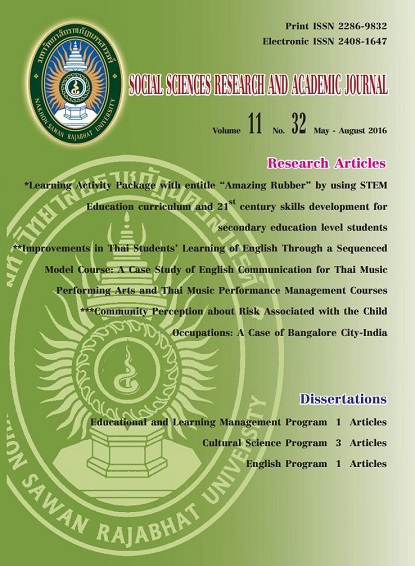Learning centers in Buddhist temples: The development of community service management in Western Thailand
Main Article Content
Abstract
Abstract
This research aims to 1) examine the history and leadership status of administrators and the problems of learning centers; 2) investigate the guidelines for the management of temple learning centers for public services in Western Thailand, and 3) explore the learning management model in the temples for public services in Western Thailand. The qualitative research was conducted at 9 temples in three provinces in Western Thailand. The research tools included interview, observation, focus group, and seminar workshop. The research results revealed that the majority of the temple’s learning centers in West Thailand had been developed for more than 100 years for art and cultural transmissions. The problematic conditions were the lack of personnel, budget, and care from the government sector. The abbots were of high seniority in terms of age, education, devotion and morality. Regarding guidelines for the management of the academic learning centers, all learning centers have the guidelines in the same 3 aspects: management process, method, and function. The temple learning center management model is based on 4 activities. These are: 1) religious studies; 2) education support tasks; 3) public support tasks; 4) dissemination tasks. In addition, moral training camps were set up to transmit local culture and disseminate Buddhist doctrines through various kinds of media.


